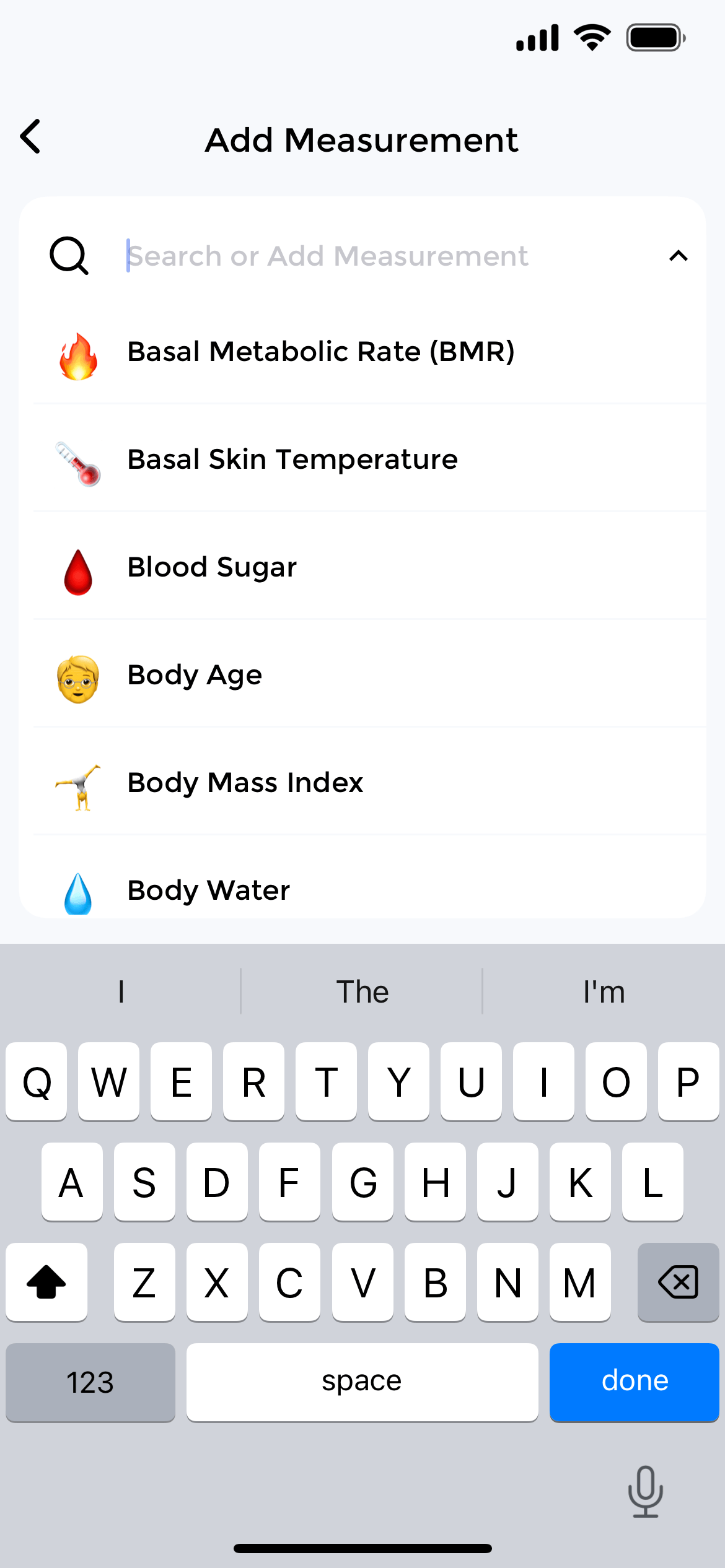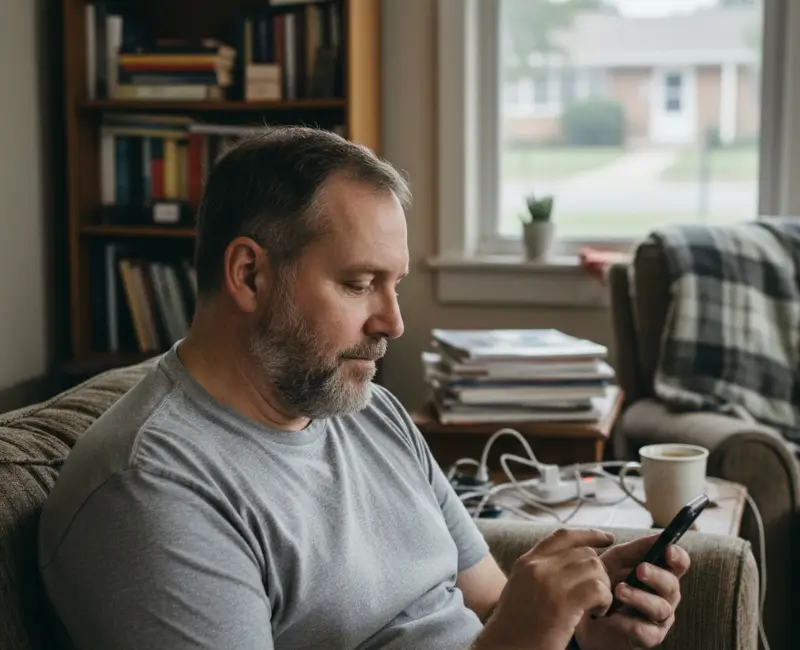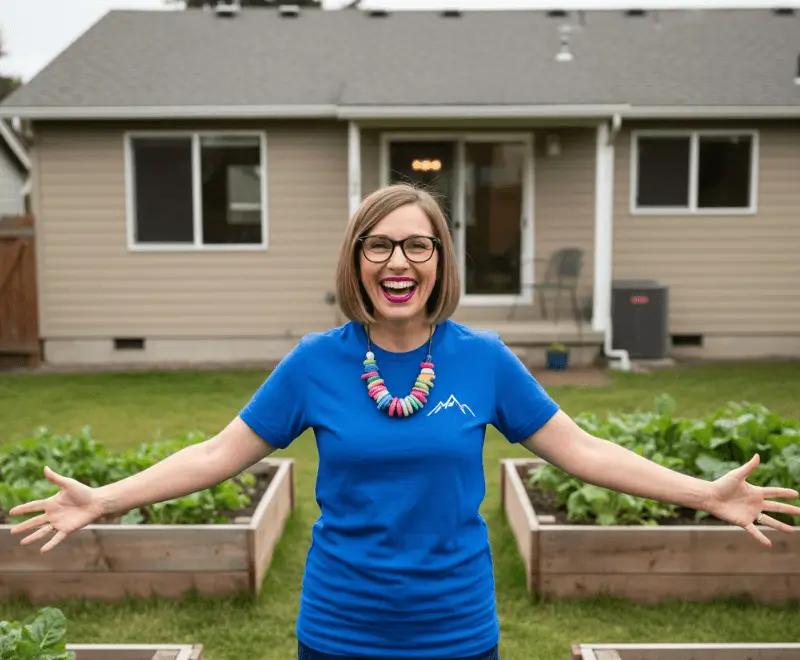Blood Sugar Tracker
Take control of diabetes management by tracking blood glucose levels, A1C, medications, carbs, and meals in one comprehensive app.
Nearly 38 million Americans have diabetes, yet many struggle to manage blood sugar levels consistently. Without proper glucose tracking, it is difficult to identify patterns, understand food impacts, or determine whether treatment is working. CareClinic’s blood sugar tracker helps you log readings, correlate with meals and insulin, and share detailed reports with your healthcare provider.
Understanding Blood Sugar Levels
Blood sugar (glucose) is the main energy source for your body’s cells. Moreover, it comes from the food you eat and is regulated by insulin from your pancreas. When you have diabetes, either your body does not produce enough insulin (Type 1) or cannot use insulin effectively (Type 2).
Normal fasting blood sugar is less than 100 mg/dL (5.6 mmol/L). Additionally, prediabetes ranges from 100-125 mg/dL (5.6-6.9 mmol/L). Furthermore, diabetes is diagnosed when fasting glucose is 126 mg/dL (7.0 mmol/L) or higher on two separate tests. Consequently, A1C levels provide a 2-3 month average: normal is below 5.7%, prediabetes is 5.7-6.4%, and diabetes is 6.5% or higher.
Using the diabetes tracker in CareClinic helps you monitor these ranges and understand how food, exercise, stress, and medications affect your glucose levels throughout the day.
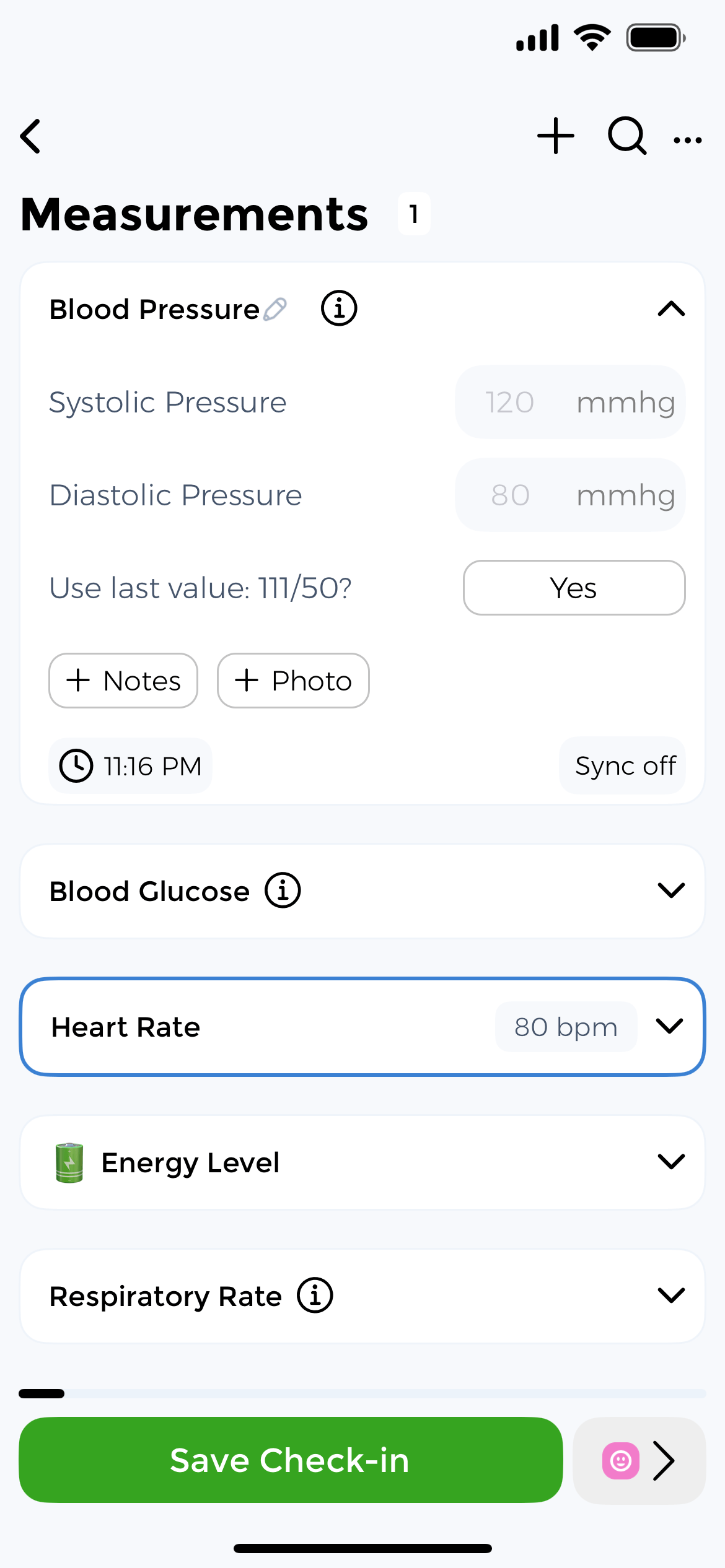
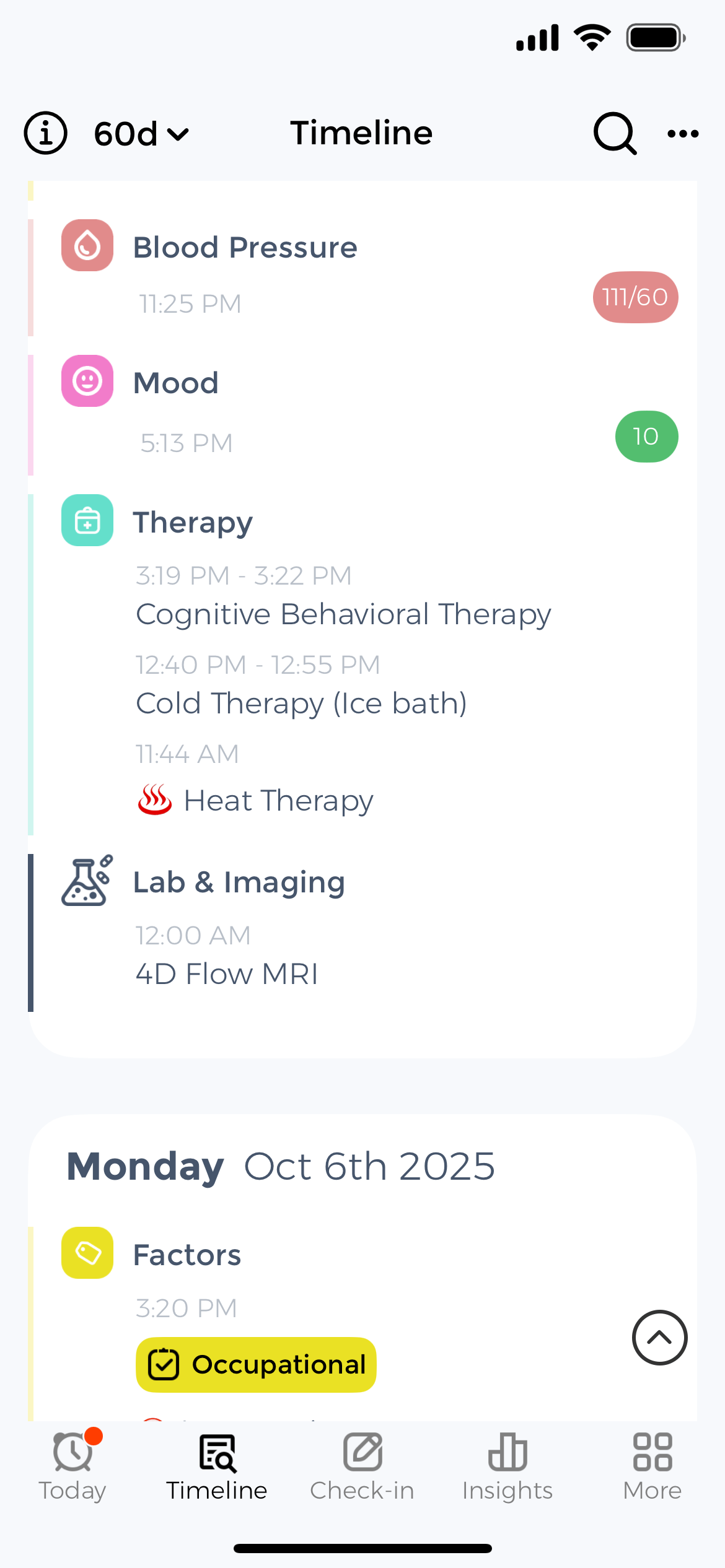
Log and Monitor Glucose Readings
The best way to track blood sugar is to log every reading consistently at the same times daily. Furthermore, CareClinic makes tracking blood sugar simple with quick entry screens for glucose values in mg/dL or mmol/L. In addition, you can log pre-meal, post-meal, fasting, and bedtime readings with timestamps.
Add notes about what you ate, insulin doses, exercise, or stress levels before each reading. Moreover, this context helps identify patterns and triggers that affect your numbers. Consequently, the app functions as both a blood sugar log app and a comprehensive diabetes tracker.
CareClinic syncs across devices, ensuring your data is accessible whether you are at home, work, or at your doctor’s appointment. Additionally, you can review your complete history in timeline view to see how your numbers change over days, weeks, or months.
Comprehensive Glucose Tracking Features
Track blood sugar levels, A1C, insulin doses, carbohydrates, meals, and lifestyle factors to understand what influences your glucose control every day.
Blood Glucose Logging
Log fasting, pre-meal, post-meal, and bedtime glucose readings in mg/dL or mmol/L to monitor daily fluctuations and patterns.
A1C Tracking
Track your hemoglobin A1C levels over time to monitor 2-3 month average blood sugar control and measure diabetes management progress.
Glucose Trend Charts
Visualize how blood sugar changes throughout the day with interactive charts showing daily patterns, weekly averages, and monthly trends.
Insulin Dose Tracking
Track rapid-acting, long-acting, and basal insulin doses to correlate with glucose readings and optimize dosing schedules.
Carb & Meal Tracking
Log meals and carbohydrate intake to understand how different foods affect blood sugar and identify glucose spikes after eating.
Glucose Check Reminders
Set custom reminders for fasting checks, pre-meal tests, post-meal monitoring, and bedtime readings to ensure consistent tracking.
CGM Integration
Connect continuous glucose monitors and sync readings automatically from devices that integrate with Apple Health or Google Fit.
Hypoglycemia Alerts
Get notifications when readings drop below safe ranges or show concerning patterns requiring immediate attention or treatment adjustments.
Pre & Post-Meal Logging
Track glucose before meals and two hours after to understand food impacts and adjust insulin or carb intake accordingly.
Diabetes Medication Tracking
Log metformin, Jardiance, Ozempic, Januvia, glipizide, and other diabetes medications to correlate with glucose readings and see which treatments lower your A1C most effectively.
Exercise Impact Tracking
Monitor how physical activity affects blood sugar levels throughout the day to optimize exercise timing and prevent hypoglycemia.
Stress & Illness Tracking
Track stress levels and illnesses that affect glucose control, as both can cause blood sugar spikes even without dietary changes.
Glucose Reports for Doctors
Generate professional PDF reports with glucose charts, A1C history, and reading statistics to share with endocrinologists and diabetes educators.
Family Diabetes Tracking
Monitor blood sugar for multiple family members in one app, perfect for parents managing children with Type 1 diabetes or caregivers.
Gestational Diabetes Tracking
Track blood sugar during pregnancy to monitor for gestational diabetes with specialized tracking for maternal and fetal health.
Syncs with Glucose Meters & CGMs
Connect your glucose meter and continuous glucose monitor to automatically import readings into one unified blood sugar log. Additionally, CareClinic integrates with Apple Health, Google Fit, Fitbit, and other platforms that sync with digital glucose devices. Moreover, manual entries merge seamlessly with device data to create a complete diabetes management picture.

Apple Health

Fitbit
Glucose Meters
CGM Devices
Samsung Health

Google Fit
Manage Diabetes & Related Conditions
Track patterns in glucose fluctuations and discover specific health conditions and lifestyle factors affecting your diabetes management daily.
Type 1 Diabetes
Track insulin doses, carb counting, and blood sugar patterns for Type 1 diabetes with detailed logs supporting intensive insulin therapy management.
Type 2 Diabetes
Monitor blood sugar alongside medications like metformin, lifestyle changes, and weight loss efforts to manage Type 2 diabetes effectively.
Prediabetes Management
Track glucose levels and lifestyle changes to reverse prediabetes before it progresses to Type 2 diabetes through diet and exercise.
Gestational Diabetes
Monitor blood sugar during pregnancy with specialized tracking for gestational diabetes to protect both maternal and fetal health.
Dawn Phenomenon
Track early morning glucose spikes caused by hormonal changes overnight to adjust insulin or medication timing for better fasting glucose.
Hypoglycemia Episodes
Log low blood sugar episodes with severity, symptoms, and treatment to identify patterns and prevent dangerous hypoglycemic events.
Discover What Affects Your Glucose
See how meals, insulin, exercise, and daily activities influence your blood sugar through visual charts and correlation insights.
Log Glucose & Daily Factors
Record blood sugar readings manually or sync from glucose meters and CGMs. Additionally, track glucose alongside insulin and medications, carbs and meals, exercise, stress, and sleep. Consequently, the app captures everything affecting your diabetes management.
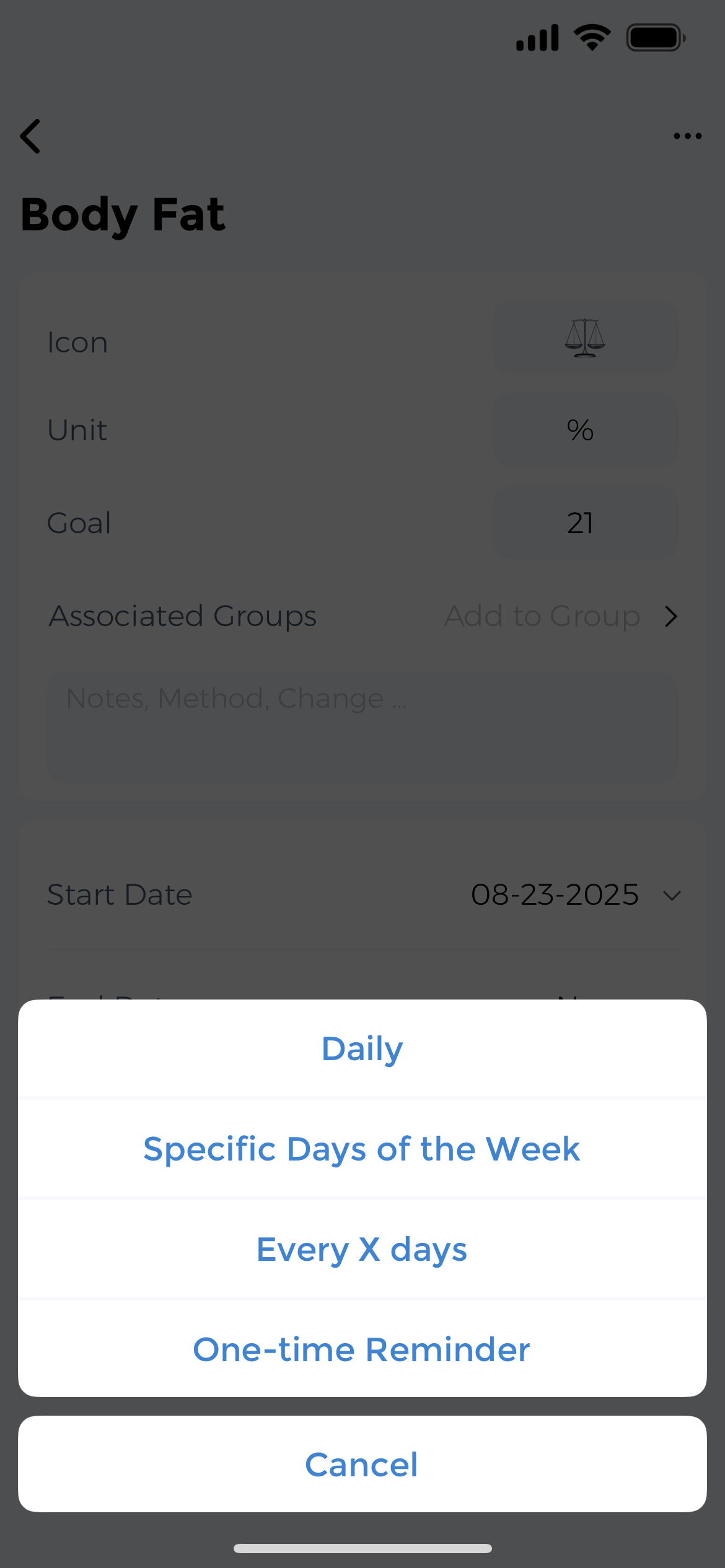
Discover Food & Insulin Impact
The app analyzes relationships between glucose and your daily activities. Furthermore, see how carbohydrates raise blood sugar, or how insulin doses lower it. Moreover, charts reveal meal patterns you might otherwise miss, showing which foods cause the biggest spikes.
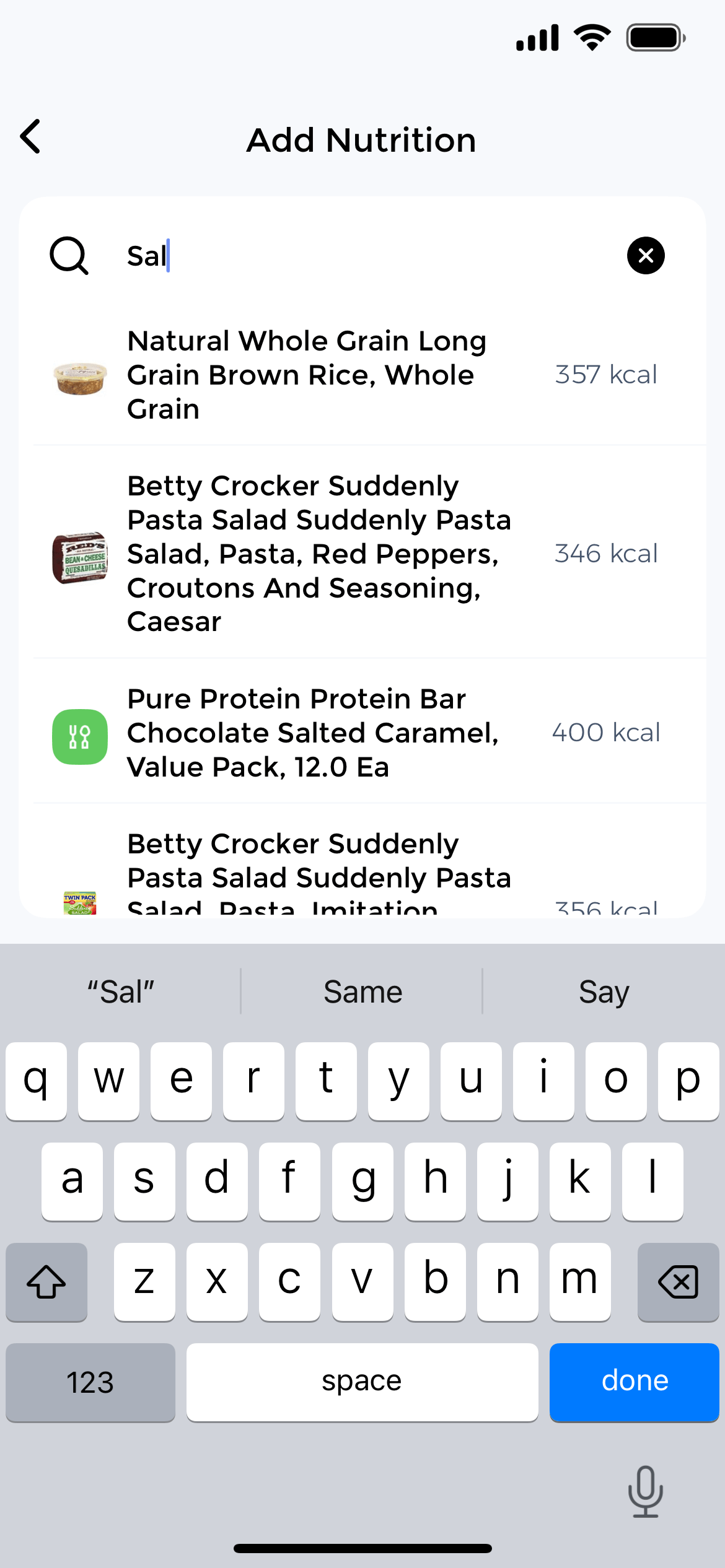
Improve Glucose Control
Use insights to make informed dietary and treatment changes. Consequently, share detailed glucose reports with your endocrinologist to adjust insulin, modify diet, increase exercise, or address other factors. Moreover, your diabetes tracker becomes a powerful tool for achieving better A1C levels.
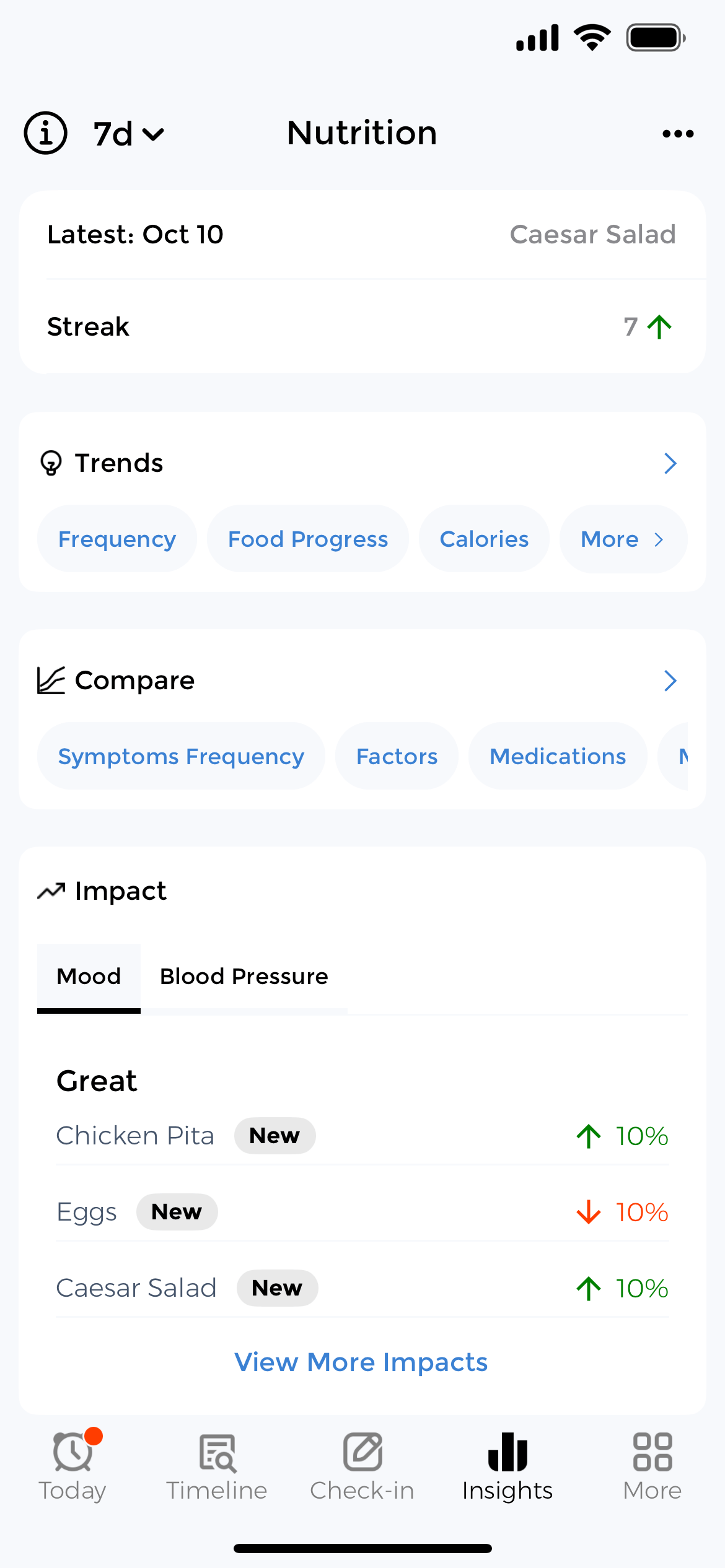
Track Related Diabetes Factors
See the complete picture of what influences your blood sugar by tracking all the factors affecting glucose control. Furthermore, CareClinic correlates glucose data with insulin, carbs, exercise, weight, stress, and sleep to reveal exactly which daily habits impact your readings.
Insulin & Medications
Track Humalog, Lantus, Levemir insulin doses, plus metformin, Ozempic, Jardiance, and Farxiga to see which medications lower your glucose by 30-50 mg/dL and improve time in range.
Carbs & Meals
Log meals and carbohydrate grams to identify how different foods affect blood sugar and discover meals that cause glucose spikes.
Exercise & Activity
Track physical activity and see how exercise timing, duration, and intensity affect blood sugar to prevent hypoglycemia during workouts.
Weight & BMI
Monitor body weight alongside blood sugar to track how weight loss correlates with improved glucose control and insulin sensitivity.
Stress & Mood
Monitor daily stress levels and mood to understand how emotional state and cortisol affect blood sugar readings throughout the day.
Sleep Quality
Track sleep duration and quality to correlate with fasting glucose readings and identify how poor sleep affects insulin resistance.
Diabetes Tracking Success Stories
Real stories from people who improved glucose control through consistent tracking, discovered meal impacts, and achieved lower A1C levels through data-driven diabetes management.
Understanding Blood Sugar Science
Learning how blood glucose works helps you make better decisions about diabetes management and treatment options.
What Is Blood Sugar
Blood sugar (glucose) is the primary energy source for cells. Moreover, it comes from carbohydrates in food and is regulated by insulin from the pancreas. Additionally, when you eat carbs, glucose enters your bloodstream, signaling insulin release. Furthermore, insulin helps cells absorb glucose for energy or storage, keeping blood sugar within healthy ranges.
Why High Glucose Is Dangerous
Chronic high blood sugar damages blood vessels, nerves, and organs over time. Additionally, this increases risk for heart disease, stroke, kidney failure, vision loss, and nerve damage. Furthermore, diabetes complications develop silently without symptoms. Consequently, regular glucose monitoring is essential for early detection and prevention of serious health problems.
How to Control Blood Sugar
Diet, exercise, and medications work together to control glucose. Moreover, limiting refined carbs, eating fiber and protein, and exercising regularly all help. Additionally, medications like metformin, Ozempic, Jardiance, Januvia, and insulin work when lifestyle changes are not enough. Furthermore, tracking shows which medication lowers your glucose by 40-60 mg/dL and which combinations work best for your body.
Diabetes Research & Evidence
Consistent blood sugar tracking and glucose monitoring significantly improves A1C levels, reduces complications, and enhances long-term diabetes outcomes.
Private and Secure Diabetes Tracking
We protect your glucose logs and diabetes health information with bank-level encryption, HIPAA compliance, and biometric security. Moreover, you control exactly who sees your data, and your information is never sold or shared without explicit permission.
Frequently Asked Questions
Common questions about tracking blood sugar, choosing glucose meters, sharing data with endocrinologists, and improving diabetes control through consistent monitoring.
A blood sugar tracker is an app that logs glucose readings, A1C levels, insulin doses, carbs, and related factors like meals and exercise. CareClinic helps you monitor glucose trends, identify food impacts, and share reports with your endocrinologist for better diabetes management.
The CareClinic app makes blood sugar tracking simple. Measure glucose with your meter or CGM, then enter the reading in mg/dL or mmol/L into the app. Add the date, time, meal context, and any notes about insulin or activity. The app creates charts showing how your numbers change over time.
The best way to track blood sugar is to measure fasting glucose in the morning, log pre-meal and 2-hour post-meal readings, and record every measurement consistently. Use a validated glucose meter and log readings in CareClinic to identify patterns, correlate with meals and insulin, and share data with your healthcare provider.
Yes, CareClinic offers free blood sugar tracking features including unlimited glucose logging, A1C tracking, trend charts, and basic reports. Premium features unlock advanced analytics, meal correlation analysis, and enhanced sharing options, but core glucose tracking remains free for all users.
FDA-approved glucose meters provide accurate readings within 15% of lab values when used correctly. Popular brands like Contour Next, FreeStyle Lite, and OneTouch Ultra meet accuracy standards. Always follow manufacturer instructions, use fresh test strips, and log readings in CareClinic for reliable diabetes tracking.
Glucose tracking itself does not lower A1C, but consistent monitoring helps you identify food triggers, measure insulin effectiveness, and track lifestyle changes that do lower A1C. CareClinic shows correlations between meals, exercise, medications, and blood sugar so you can make informed decisions to improve diabetes control.
CareClinic syncs with glucose meters and continuous glucose monitors that connect to Apple Health, Google Fit, or other health platforms. Compatible devices include Dexcom, FreeStyle Libre, Contour Next, OneTouch, and other Bluetooth-enabled glucose meters. You can also manually enter readings from any blood glucose monitor.
Most doctors recommend checking blood sugar 4-7 times daily for Type 1 diabetes and 2-4 times daily for Type 2 diabetes. Test fasting glucose in the morning, before meals, 2 hours after meals, and at bedtime. Your endocrinologist may recommend a different schedule based on your medications and diabetes type.
Yes, CareClinic generates professional PDF reports with glucose charts, A1C history, and reading statistics you can export and share with endocrinologists and diabetes educators. You can email reports, print them for appointments, or give your doctor secure read-only access to view your glucose logs directly.
CareClinic tracks insulin doses, carbohydrate grams, meals, exercise, weight, stress levels, sleep quality, and medications alongside blood sugar. These factors directly influence glucose control. Correlating them with glucose readings reveals which foods, activities, and medications work best for lowering your numbers.
Blood sugar tracker apps reveal patterns you cannot see from individual readings. CareClinic identifies meal impacts, insulin effectiveness, and concerning trends. Consequently, consistent glucose tracking provides objective evidence for treatment decisions, helps achieve better A1C levels, and reduces diabetes complications through better management.
Yes, CareClinic supports multiple family profiles in one account. You can track blood sugar for children with Type 1 diabetes, elderly parents, or anyone in your care. Each person has separate records, charts, and medications, making it easy to manage diabetes for your entire family.
Blood glucose monitoring with CareClinic helps you identify whether insulin or medications are working, spot food-related glucose spikes early, and measure how lifestyle changes affect readings. Detailed logs guide endocrinologists in adjusting treatment plans, optimizing insulin dosages, and preventing diabetes complications from uncontrolled glucose.
Yes, CareClinic helps pregnant women monitor blood sugar to detect gestational diabetes and maintain tight glucose control. Log readings 4-6 times daily and share reports with your OB-GYN. Tracking carbs, meals, and glucose alongside pregnancy symptoms helps identify patterns that require dietary adjustments or insulin therapy.
Blood sugar monitoring refers to taking individual glucose readings with a meter or CGM. Blood sugar tracking means logging those readings over time and analyzing patterns, food impacts, and insulin effectiveness. CareClinic combines both by providing a place to record measurements and tools to visualize trends, correlations, and long-term diabetes control.

